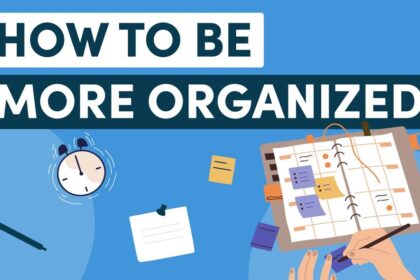How to Prepare for a Job Fair 2024, Job fairs can be incredibly valuable events for networking with potential employers and learning about a wide range of career opportunities. However, they can also feel like overwhelming environments full of competition. To make the most out of attending a job fair, thorough preparation is key. Here are some proven tips to help you get ready and stand out from the crowd:
Research Attending Companies
Weeks before the fair, get a list of the companies that will be in attendance and do your homework. Spend time reviewing their websites, outlets they’re covered in, and employee feedback sites like Glassdoor. Develop a good understanding of their missions, values, cultures, product/service offerings, and any open job roles that appeal to you. Having this background knowledge will help you ask insightful questions, find areas of alignment with your goals, and discuss your fit like an informed candidate rather than an outsider.
Prioritize Your Top Prospects
Once you know which companies will be there, identify your top 10-15 targets you want to prioritize based on your interests and qualifications. Develop a specific plan of attack for these priority prospects. Have tailored marketing materials, talking points, questions, and conversational strategies ready for each one’s exhibit or recruiter. Don’t just wing it with these top choices.
Update Your Resume
Your resume should be polished and updated with all relevant academic, professional, and extracurricular accomplishments and experience. Customize the content to align with the types of roles and companies you’re pursuing. Ensure formatting is clean and consistent. Have several printed copies prepared, as well as digital versions ready to go.
Prepare Your Elevator Pitch
An elevator pitch is a concise yet persuasive overview of who you are, what you do, and why you’re a great candidate. Having this 30-60 second pitch perfected ahead of time is crucial for making a confident and compelling introduction. Focus it on your background, strengths, goals, and unique value proposition. Then tailor as needed to each prospective employer’s priorities.
Practice Interviewing
While resume reviews and informational conversations are more common at job fairs than formal interviews, be prepared just in case you land one on the spot. Review common interview questions and practice delivering clear, structured responses that highlight your qualifications. Role play with a friend or mentor to work through any nervous tendencies. The more you rehearse, the more at-ease you’ll be if an impromptu interview arises.
Prepare Questions
Have a list of insightful, tailored questions ready to ask representatives from companies you’re interested in. This shows your level of preparation, genuine interest, and analytical traits as a candidate. Some good areas to ask about include company culture and values, training and development opportunities, key challenges or priorities, team dynamics, and paths for advancement.
Look the Part
Dress for success in professional business attire as you would for a formal job interview. Have a portfolio folder ready to neatly store resumes, company research, and take notes. Check that your overall appearance is neat, polished, and on-brand for the roles you’re pursuing. You only get one chance at a first impression with each recruiter you meet.
Get Business Cards
While resumes are crucial, having clean and polished personal business cards prepared is also important. They provide a quick and easy way for interested employers to get your contact information while also serving as a simple branding tool and conversation starter. Order them from a professional printer or make them yourself, but have enough accessible to freely distribute.
Activate Your Network
Let your network of family, friends, mentors, and academic/professional connections know about your upcoming job fair. They may be able to provide tips, coaching, or even recruiter introductions that could pay big dividends at the event. Don’t hesitate to ask for any potentially helpful insights or support. A warm connection can give you an advantage over candidates coming in cold.
Scout the Layout
If possible, find out the layout and exhibitor locations ahead of time. Some job fairs provide maps showing where companies will be situated. Having a strategic plan of attack can prevent aimless wandering and ensure you don’t overlook any key targets in the chaos. You can map out a systematic route to hit your prioritized lists efficiently.
Plan Your Schedule
Large job fairs may have special seminars, recruiter talks, or workshops alongside the exhibitor floor. Read through the schedule carefully to determine which events may be most relevant and productive to attend based on your goals. Block out time in your personal schedule to ensure you don’t miss any opportunities.
Bring Supplies
Beyond resumes and business cards, make sure you have a notebook for taking notes, as well as extra pens and paper. Consider bringing a light snack or beverage if permitted to keep your energy sustained. If you have portfolios of work samples relevant to target jobs, you may also want to have a clean copy on hand. Finally, make sure your phone/devices are fully charged for navigation or research needs.
The main key to succeeding at job fairs is to demonstrate your intentional preparation, enthusiasm, and genuine interest in each prospective employer you connect with. Don’t just randomly bounce from booth to booth – that sends the message you don’t have direction. By following the preparation tips above, you’ll make a strong impression as a candidate with focus and defined career ambitions. This level of polish will set you apart.








